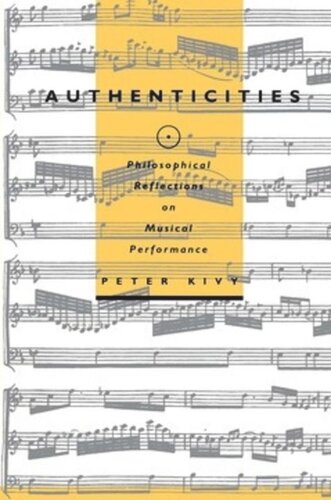

Most ebook files are in PDF format, so you can easily read them using various software such as Foxit Reader or directly on the Google Chrome browser.
Some ebook files are released by publishers in other formats such as .awz, .mobi, .epub, .fb2, etc. You may need to install specific software to read these formats on mobile/PC, such as Calibre.
Please read the tutorial at this link: https://ebookbell.com/faq
We offer FREE conversion to the popular formats you request; however, this may take some time. Therefore, right after payment, please email us, and we will try to provide the service as quickly as possible.
For some exceptional file formats or broken links (if any), please refrain from opening any disputes. Instead, email us first, and we will try to assist within a maximum of 6 hours.
EbookBell Team

4.4
12 reviews"In his latest book on the aesthetics of music, Peter Kivy presents an argument not for authenticity but for authenticities of performance, including authenticities of intention, sound, practice, and the authenticity of personal interpretation in performance.... As usual, Kivy's work is beautifully written, well argued, and provocative."—Notes"Kivy has provided a sorely needed framework for all future discussion of the authenticity matter. This is his best book, a major contribution to performance studies and to musical aesthetics; likely it will be studied and cited for generations."—Choice"Written in lively prose, with a keen sense of reality, [this volume] ought to be of interest not only to philosophers and musicologists, but to all serious lovers of music."—Roger Scruton, Times Literary Supplement"The consistent theme running through Kivy's book is the need for interpretation as the personal authenticity and authority of the performer against the ideology both of the composer as genius and of the puritanical devotion to the authority of the text of the early music devotees.... This is a most valuable book, one which constantly surprises and delights through its philosophical insights and informed musical understanding."—British Journal of Aesthetics